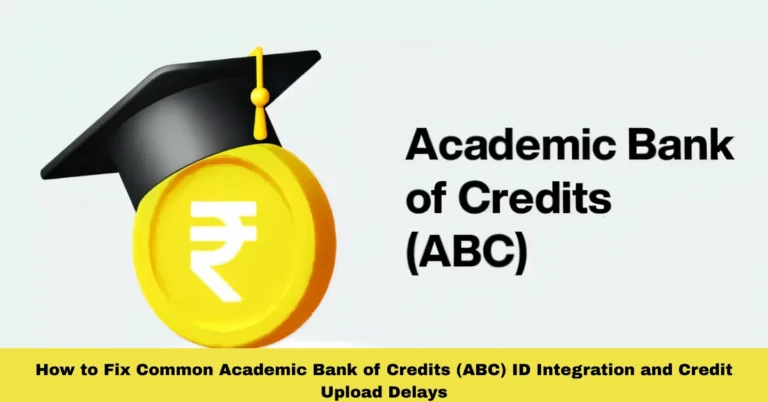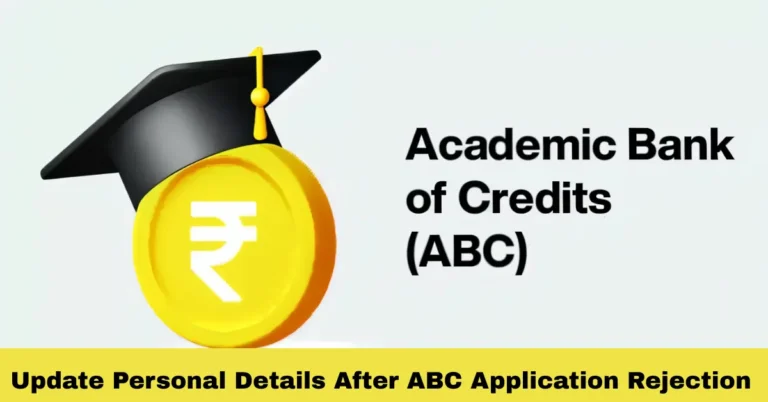Credit Transfer Problems in the ABC:What Students Need to Know
The Academic Bank of Credits ABC ID was introduced to make higher education in India more flexible by allowing students to store and transfer their earned credits between institutions.
While the system promises smoother academic mobility, many students face Credit Transfer Problems when it comes to credit transfers. Understanding these issues and knowing how to navigate them can save time, effort, and frustration.

What is the Academic Bank of Credits (ABC)?
The Academic Bank of Credits is like a digital wallet for your academic achievements. Introduced under India’s NEP 2020 and ABC ID, it stores your credits earned from approved courses and institutions. Linked to your unique ABC or APAAR ID, it allows you to collect, save, and use credits across different universities or colleges.
The idea is to give students more flexibility—letting you pause, switch, or resume studies without losing your progress.
How the Credit Transfer Process Works
The Promise vs. The Reality
The good side:
Enables seamless accumulation of credits from various courses.
Supports multiple entry and exit options in higher education.
Encourages mobility between institutions and online or offline learning.
The challenges:
Not all colleges accept the same credits due to curriculum differences.
Some institutions fail to update ABC accounts on time, which can cause records to be incomplete.
Credits from different institutions may not hold the same value in terms of academic rigor.
Only certain institutions with good accreditation scores are included, leaving others o

Common Reasons Credit Transfers Fail
Mismatch in syllabus or learning outcomes between institutions.
Credits earned from non-approved or unaccredited institutions.
Missed deadlines for applying for transfers.
Expired credits beyond the allowed validity period.
Practical Tips for Students
The Role of Institutions in Making ABC Work
Colleges and universities are responsible for:
Impact on Students’ Academic Planning
ABC can change how students plan their education. Knowing credits can transfer makes it easier to:
Challenges Faced by Rural and Smaller Institutions
Many rural and smaller institutions struggle to join ABC due to accreditation requirements, lack of digital infrastructure, or limited administrative capacity. This leaves students in these areas at a disadvantage and can reduce the reach of the system.
How to Resolve Credit Transfer Problems
If a credit transfer in ABC is denied or delayed:
Request written reasons for the decision from the institution.
Appeal to the academic council or UGC if policies are not followed.
Keep documentation of your courses, syllabi, and grades as proof.
Future of the Academic Bank of Credits in India
With growing adoption, ABC is expected to expand its network of institutions and integrate with more online learning platforms. The success of the system will depend on consistent policy enforcement, better infrastructure, and stronger awareness among both students and educators.
FAQs
Final Thoughts
The Academic Bank of Credits can be a powerful tool for flexible learning, but it’s still a developing system. Students should stay informed, keep track of their credits, and confirm transfer policies to avoid Credit Transfer Problems before making academic moves. With careful planning, ABC can help you save time, reduce repeated coursework, and make your education journey smoother.





